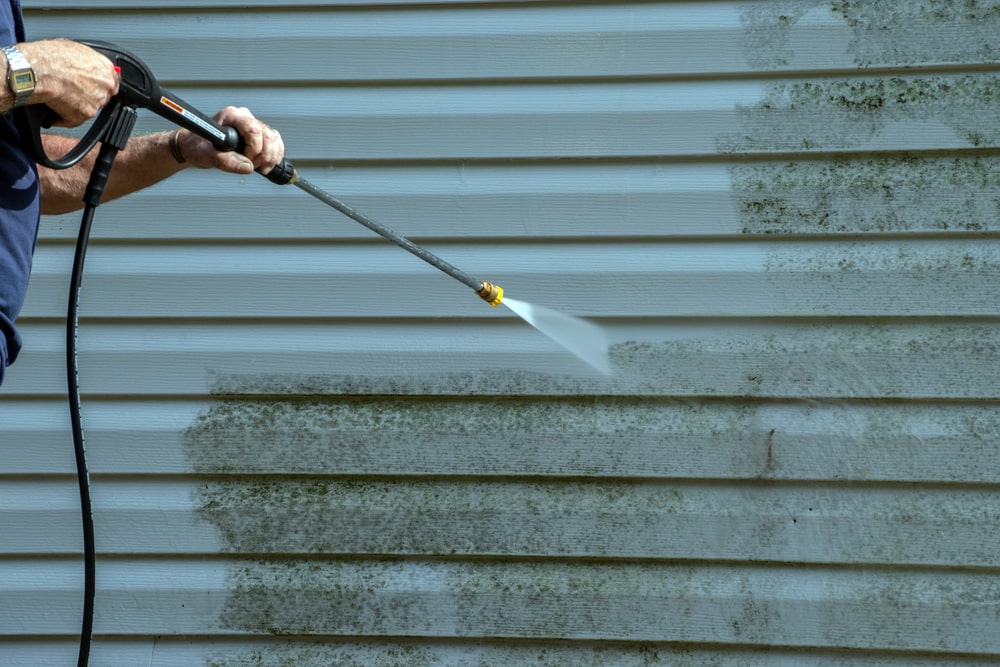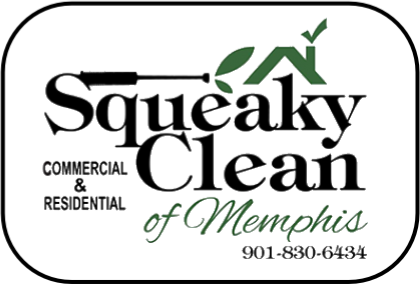
Have you ever wondered about the difference between pressure washing and power washing?
Think of it like comparing a household fan to an industrial air compressor; both move air, but in different ways.
Similarly, pressure washing and power washing both involve cleaning surfaces, yet they utilize distinct methodologies and equipment.
Understanding Pressure Washing
Pressure washing employs a high-pressure stream of water to remove dirt, grime, mold, and other contaminants from surfaces. This method is ideal for surfaces such as driveways, patios, and siding, where a powerful, deep clean is necessary to restore the material’s appearance.
Using specialized nozzles and equipment, pressure washing can efficiently target hard-to-reach areas and stubborn stains, making it a versatile option for maintaining the exterior of your property.
Definition and Purpose
Pressure washing utilizes high-pressure water to remove dirt, grime, mold, and mildew from various surfaces. It is particularly effective on decks, driveways, and siding.
Pressure washing’s primary purpose is to restore surfaces to their original condition, enhancing curb appeal and prolonging their lifespan. It can significantly improve the look and feel of your property.
Pressure washing can remove mold and mildew, potentially reducing allergens.
Power washing, on the other hand, takes pressure washing a step further by incorporating heated water. This makes it more effective in eliminating stubborn stains and deeply embedded grime. The added heat can also sanitize surfaces, making it suitable for areas where cleanliness is paramount, such as commercial kitchens and industrial spaces.
Typical Applications
Pressure washing is commonly used on residential properties for tasks such as cleaning driveways, sidewalks, decks, and siding.
Because it efficiently removes dirt and grime, it’s ideal for preparing surfaces for painting or staining. This ensures better adhesion and a more professional finish.
Power washing, with its heated water, is particularly advantageous for removing oil stains from garage floors and driveway surfaces. This makes it a preferred choice for homeowners dealing with oil or grease spots.
Additionally, power washing is often employed in commercial settings, including restaurant kitchens and industrial premises. Its sanitizing capabilities help maintain strict hygiene standards in these areas.
Both methods can significantly improve the appearance and longevity of your property, making them valuable tools for homeowners in Memphis.
Exploring Power Washing
Power washing, also known as pressure washing with heated water, offers several advantages, particularly in tackling tough grease and oil stains. The application of hot water allows for the more efficient breakdown and removal of stubborn contaminants, making it an excellent choice for heavily soiled areas.
Key Features
Power washing and pressure washing share similarities in their basic functionality: both use high-pressure water to clean surfaces. However, there are distinct differences that set them apart.
Power washing utilizes heated water, which enhances its cleaning capability. This feature is particularly useful for removing oil and grease.
The hot water in power washing helps emulsify contaminants more effectively. This means it can tackle stubborn stains more thoroughly than pressure washing.
Pressure washing, on the other hand, relies solely on the force of unheated water. It’s effective for general cleaning purposes.
This method is suitable for cleaning decks, patios, and other surfaces where excessive heat might cause damage. It provides a versatile and less intense cleaning option.
Both methods deliver excellent results, but choosing the right one depends on the specific needs of the surface you’re cleaning. Knowing these key features ensures you select the best technique for optimal results.
Common Uses
Pressure washing is ideal for general cleaning tasks, such as removing dirt, mildew, and grime from decks, patios, and sidewalks.
It’s frequently employed for surface preparation.
Power washing, with its heated water, is particularly effective in breaking down oil and grease stains often found on driveways and industrial areas.
This method is also used to sanitize various surfaces, such as outdoor seating areas at restaurants, since the heat helps kill bacteria and other pathogens. Both techniques, when used appropriately, enhance the aesthetic and functional value of your property, making it look cleaner and more welcoming.
Differences Between the Methods
Pressure washing utilizes unheated water, providing a gentler yet effective cleaning solution. This method is particularly suitable for surfaces like wooden decks, patios, and other areas where heat might cause damage.
Conversely, power washing integrates the use of heated water, enhancing its ability to break down stubborn contaminants like grease and oil. This makes it ideal for heavy-duty cleaning tasks, such as driveways, industrial areas, and restaurant outdoor seating. Both approaches are tailored to different surface requirements, ensuring thorough and safe cleaning results.
Equipment and Technique
Both pressure washing and power washing require specialized equipment to achieve optimal results. The distinction lies primarily in the heating mechanism for the water.
- Pressure Washer: A device that uses unheated water at high pressure to clean surfaces.
- Power Washer: Similar to a pressure washer but includes a heating element to warm the water.
- Pressure Nozzles: Different nozzles control the spray pattern and pressure intensity.
- Surface Cleaners: Attachments designed to evenly clean large flat surfaces.
- Detergents and Cleaners: Specialized chemicals can be used to enhance the cleaning process.
- Safety Gear: Including gloves, goggles, and protective clothing to ensure operator safety.
- Hoses and Connectors: Durable components that can handle high pressure and heat.
Pressure washing uses unheated water, which is adequate for removing dirt without damaging sensitive surfaces. Power washing, however, uses heated water, offering superior cleaning for tough, oily stains.
Choosing the right equipment and technique ensures the longevity and cleanliness of your property, making it essential for homeowners to understand these distinctions.
Suitability for Surfaces
When it comes to selecting between pressure washing and power washing, the suitability for surfaces is paramount.
Pressure washing, with its unheated water, is a gentler cleaning method, making it suitable for delicate surfaces. For instance, wooden decks, patio furniture, and vinyl siding can benefit from pressure washing without the risk of damage from intense heat.
Conversely, power washing’s heated water is ideal for surfaces that require a more forceful cleaning approach. Concrete driveways, brick walls, and industrial equipment often harbor stubborn grime that heated water can effectively remove. The combination of high pressure and hot water enables power washing to dissolve and eliminate tough residues.
Ultimately, assessing the specific needs of your surfaces will inform the optimal choice. While power washing is advantageous for heavily soiled, durable surfaces, pressure washing provides efficient cleaning for more fragile materials. For Memphis homeowners, understanding these differences ensures effective and safe cleaning practices tailored to various exterior surfaces.
Choosing the Right Option
Selecting the appropriate cleaning technique, whether pressure or power washing, hinges on the condition and material of the surfaces in question. Memphis homeowners must factor in considerations such as surface fragility, the extent of dirt buildup, and long-term maintenance goals to determine the suitable approach that aligns with their specific needs and environmental conditions.
Factors to Consider
Surface Material Considerations are critical when deciding between pressure and power washing.
Different materials react uniquely to varying pressure levels and temperatures. For instance, delicate surfaces like wood and painted surfaces may require the gentler approach of pressure washing to avoid damage. Conversely, surfaces such as concrete and brick can withstand the intensity of power washing, benefitting from the heated water to remove tough stains and mold.
Type of Stains is another key factor.
The nature and origin of the dirt or stains on your surfaces will dictate the most effective cleaning method. Organic stains like algae and mildew often necessitate the high-temperature capabilities of power washing, while general dirt and grime can usually be managed with pressure washing.
Cost Implications can affect your decision.
Power washing often involves higher operational costs due to the equipment and energy required to heat the water. Therefore, homeowners should weigh the necessity of thorough cleaning against budget constraints. Pressure washing, generally being more economical, might be a more feasible option for routine maintenance.
Environmental Impact is an essential consideration.
Memphis homeowners must be aware of the water usage and potential runoff implications of both methods. Pressure washing tends to use less water and may pose fewer environmental risks, whereas power washing, while effective, can lead to greater water consumption and potential chemical runoff.
By evaluating these factors, you can make an informed decision tailored to your unique circumstances. Understanding the balance between the material integrity, type of stains, cost-efficiency, and environmental considerations will ensure a safe and effective cleaning solution for your home’s exterior.
Pros and Cons
Understanding the pros and cons of pressure washing versus power washing can guide your decision-making for exterior cleaning.
- Pros of Pressure Washing:
- Cost-effective for routine maintenance
- Uses less water and energy
- Suitable for most surfaces
- Pros of Power Washing:
- More effective for stubborn stains
- Ideal for heavily soiled surfaces
- Hot water can sanitize areas
- Cons of Pressure Washing:
- Less effective on grease and mold
- May require multiple sessions
- Cons of Power Washing:
- Higher operational costs
- Increased water and energy consumption
- Potential risk to sensitive surfaces
Both methods have their strengths and weaknesses. Your specific needs will dictate the best approach.
Evaluate these factors in relation to your property to make the most informed choice.
Should I Just Hire a Pro?
In many cases, yes, you should hire a professional.
Hiring a professional for pressure or power washing ensures efficacy and safety. They possess specialized knowledge to assess the appropriate techniques and equipment required, mitigating risks such as surface damage or water intrusion. Furthermore, professionals are often covered by insurance, offering additional peace of mind.
DIY pressure washing has its place.
However, for substantial or intricate cleaning tasks – like removing tough stains or handling large surfaces – professional pressure washing services like, Squeaky Clean of Memphis, offer significant advantages. Their expertise allows them to deliver high-quality results within a shorter timeframe.
Moreover, engaging a professional can extend the lifespan of your property’s exteriors. Experienced cleaners know how to prevent potential damaging effects, such as etching or abrasion, while maximizing the cleaning benefits. Therefore, investing in professional services can enhance the longevity of your home’s exterior surfaces, preserving both aesthetic appeal and structural integrity.
Conclusion
Understanding the differences between pressure washing and power washing is essential for maintaining the exterior of your home in Memphis. While both methods offer powerful cleaning solutions, they serve distinct purposes depending on the nature of the surface and the type of stains involved. Pressure washing provides an economical, gentle option suitable for routine maintenance of surfaces like wooden decks and siding. Power washing, with its heated water, is ideal for tackling stubborn grease, mold, and heavily soiled areas, especially on tougher surfaces like concrete driveways and industrial spaces.
Selecting the appropriate method requires careful consideration of various factors including the material of the surface, the type of contaminants, cost implications, and environmental impact. By assessing these elements, homeowners can ensure they choose the most effective and safe cleaning technique for their specific needs.
Ultimately, while DIY options are available, hiring a professional service often guarantees better results with fewer risks. Professionals bring expertise, efficiency, and insurance coverage, making them a wise investment for extensive or complicated cleaning tasks. By making informed decisions about pressure washing and power washing, you can enhance your property’s appearance, prolong its lifespan, and maintain a welcoming and well-maintained exterior.
